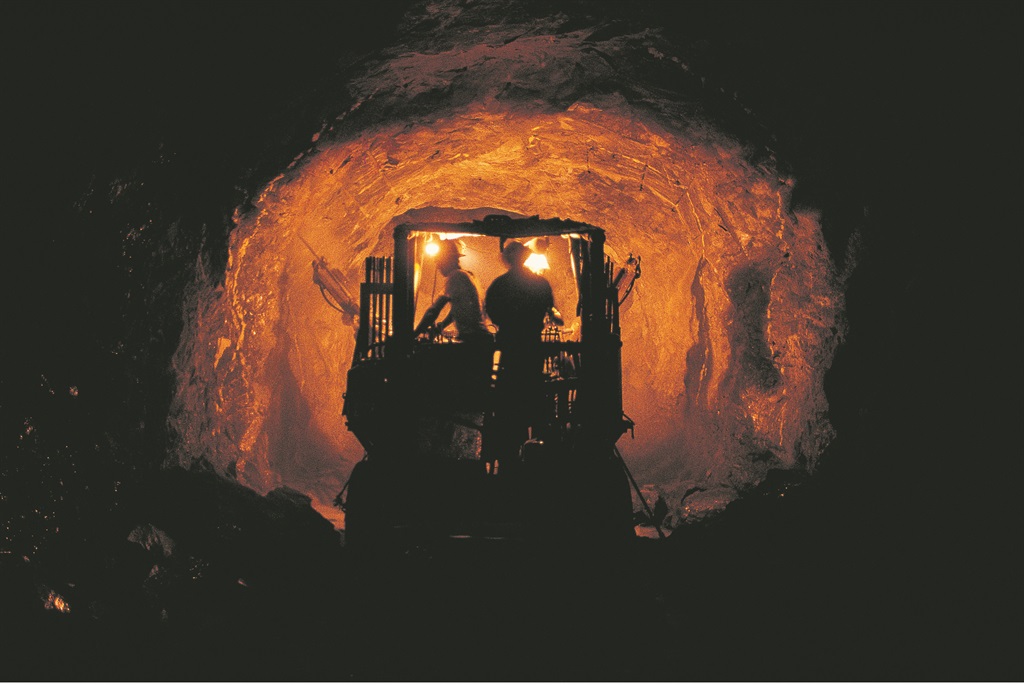
The third revision of the Mining Charter is ‘a more extreme version’ of the previous ones, and will add to pressure on the mining industry, experts say
The implementation of the latest revision of the Mining Charter will result in major costs for local mining companies.
This is according to Patrick Leyden, director at Herbert Smith Freehills, who was speaking this week at a media event that was held to look at the latest edition of the charter – which is into its third revision.
The new draft was released by government on April 15.
There was a suggestion in the revised charter that it could apply retrospectively, said Leyden.
“This will result in significant costs to reworking the mining companies ... You can’t punish companies for doing previous deals,” he said.
Peter Leon, co-chair partner of Herbert Smith Freehills’ African practice, said if companies kept having to redo empowerment deals every time a BEE investor sold out, it would be costly for company shareholders.
Leon is notable for mainly representing the interests of the mining industry.
“Few deals will be in line with the proposed charter,” Leyden said.
A key issue of contention relating to the existing mining charter was the “once empowered, always empowered” principle, where mining companies want credit for previous deals done. Government, however, wants the companies to ensure they have the required amount of black ownership at all times.
On the one side, the government has said mining companies have failed to comply with the charter, while the Chamber of Mines has strongly disagreed with this. It said many mining firms exceeded the 26% black ownership requirement.
“The most contested aspect of the charter is the 26% ownership requirement,” Leyden said. “We are going to charter three without resolving the issues in charter two.”
The Chamber of Mines has taken government to court over the “once empowered, always empowered” principle.
And to align with the sector codes, the definition of “historically disadvantaged South Africans” had been replaced with “black people”, said Leyden.
“The latest charter is very prescriptive when it comes to the inclusion of black entrepreneurs, workers and communities,” he said.
Another key issue was that mining companies could get an 11% offset for taking part in beneficiation. But there was no mechanism in the charter to calculate this offset.
The requirement for BEE procurement has risen from 40% to 60%.
However, half of the 60% must be bought from small businesses – companies with a turnover of less than R10 million.
“Are there enough small businesses to make the specialised mining equipment?” asked Leon.
Employment equity requirements for the mining sector have also been significantly hiked.
Leon said it was possible a new version of the revised charter could be published in July.
“The latest charter is a more extreme version of the previous charters,” Leon said, adding that it should be a “policy document” rather than a legal document, he said.
“The Mining Charter is a blunt legislative instrument.”
In mining, investors sorted regulatory predictability second only to the geology of a country, said Leon.
“If you don’t have regulatory certainty, people won’t invest.”
Adding to the pressure on the local mining sector was the fact that commodity prices had fallen sharply.
Leon quoted the UN Conference on Trade and Development global investment trend monitor, released in January, which showed that foreign direct investment (FDI) flows into Africa fell by 31% in 2015 to $38 billion (R558 billion).
FDI flows into Mozambique fell by 21% to $3.8 billion in 2015. Nigeria’s FDI dropped by 27% to $3.4 billion when the country was hit by the drop in oil price. South Africa’s FDI flows fell off by 74% to $1.5 billion last year.
The drop in commodity prices had had an effect on South Africa’s economy because the mining sector was key to the country’s exports, gross domestic product and tax revenues.
“The drop in commodities prices has also resulted in big job losses,” said Leon.
The fall in commodities prices had added to the missteps in the management of the economy, as well as bottlenecks in infrastructure in power, rail and the ports.
“Labour relations remain fractious,” he said.
Leon held up the Botswana mining code as “the best mining code in Anglophone Africa”.
“If they suspend or cancel your mining right in Botswana, there have to be very good grounds,” he said.
Leon described the move by President Jacob Zuma to refer the Minerals and Petroleum Resources Development Act back to Parliament as “positive news”.
Ben Winks, a Herbert Smith Freehills associate, identified three key sticking points associated with the proposed new act.
First, Winks said, there was a need for separation between the law governing mining and the law governing oil and gas, including shale gas and coal-bed methane.
Secondly, the act looked at placing export restrictions on strategic minerals, including coal and iron ore.
Winks said it was short-sighted to declare certain minerals as strategic because this could violate international trade agreements.
“South Africa could face a World Trade Organisation complaint – similar to the complaint China faced,” he said.
Thirdly, the minister of mineral resources was given certain powers in terms of the act, but those powers should rather rest in the hands of Parliament.
“The minister can change the law at will – this creates a lot of uncertainty,” Winks said.




 Publications
Publications
 Partners
Partners








